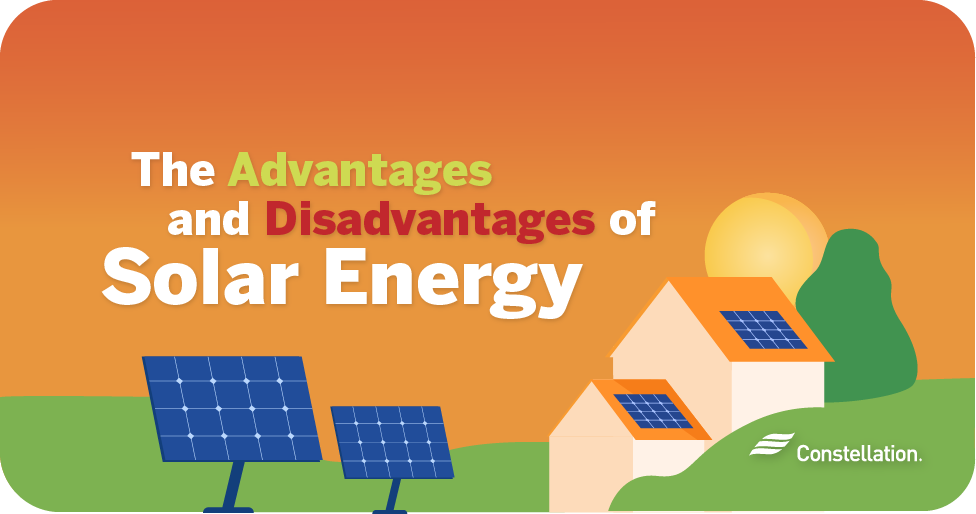How Solar Energy Can Help You Save Money and Reduce Your Carbon Impact
The integration of solar power right into your power profile presents a compelling opportunity for both economic savings and ecological stewardship. As different government incentives end up being readily available, the question occurs: how can one successfully browse the initial investments and ongoing advantages of solar innovation to make the most of both economic and ecological gains?
Recognizing Solar Power Financial Savings
While the shift to solar power frequently involves a preliminary investment, understanding solar energy financial savings is important for home owners and organizations alike. Solar power systems can considerably minimize electrical power costs by harnessing the sun's energy, converting into considerable long-lasting monetary advantages. By creating their own electrical energy, users lessen reliance on grid power, which goes through fluctuating rates. These cost savings can collect with time, usually resulting in a fast roi.
Furthermore, solar energy systems might get approved for various financial motivations, consisting of tax credits and rebates, better enhancing their cost-effectiveness. The accessibility of net metering permits customers to sell excess power back to the grid, developing an extra earnings stream. These elements contribute to the overall savings connected with solar energy.

Along with guide monetary financial savings, solar energy uses the included advantage of boosting residential property worth. Houses geared up with photovoltaic panels are commonly extra attractive to customers, as they promise lower power prices - Simply Solar Illinois. Comprehending these elements is necessary for any individual taking into consideration solar power, as it highlights not just the possible economic gains, however also the broader environmental and economic benefits of embracing sustainable energy services
First Expenses vs. Long-Term Conveniences
When evaluating solar energy, it is essential to weigh the preliminary expenses against the long-lasting benefits. The in advance investment for solar panels, setup, and relevant tools can be considerable, usually varying from $15,000 to $30,000, relying on the system size and home energy requirements. This first expenditure might deter some property owners; however, it is important to think about the possible financial savings over time.
As soon as mounted, solar energy systems can substantially decrease or perhaps eliminate month-to-month electricity expenses, leading to substantial long-lasting financial benefits. Researches suggest that house owners can conserve anywhere from $10,000 to $30,000 over the lifespan of their solar system, usually 25 years. In addition, many states provide rewards, tax credit scores, and discounts that can balance out first expenses, making solar more accessible.

Lowering Your Carbon Impact
Decreasing your carbon impact is a crucial consideration in today's eco conscious culture, and embracing solar power is among the most efficient approaches to attain this objective. Solar power is a tidy, renewable energy that considerably reduces dependence on fossil fuels, which are significant contributors to greenhouse gas emissions.

Furthermore, the extensive fostering of solar innovation urges the development of eco-friendly jobs and sustains technologies in energy storage and effectiveness. The more people and organizations spend in solar read this article energy, the greater the collective decrease in carbon exhausts, cultivating a cleaner atmosphere for future generations.
Government Incentives and Refunds
Embracing solar energy not only profits linked here the setting yet can also cause considerable monetary cost savings, especially with the accessibility of government rewards and rebates. Different federal, state, and local programs are developed to motivate house owners and organizations to purchase solar power systems, making the shift a lot more economical.
One of one of the most prominent incentives is the Federal Investment Tax Credit Scores (ITC), which enables planetary system proprietors to subtract a considerable percentage of the installment prices from their federal tax obligations. This reward has been critical in decreasing the in advance expenditures linked with solar energy systems. Additionally, many states use their very own tax obligation credit scores, grants, and refunds that can further enhance cost savings.
In addition, some regional governments supply real estate tax exemptions for solar setups, making certain that home owners do not face boosted real estate tax as a result of their renewable resource investments. Energy companies may also supply motivations, consisting of web metering and feed-in tariffs, which allow solar energy individuals to offer excess power back to the grid.
Choosing the Right Planetary System
Choosing the suitable solar system is vital for maximizing energy effectiveness and monetary benefits. The Home Page decision hinges on numerous aspects, consisting of energy needs, budget, and offered room. Property owners should start by assessing their electricity consumption to figure out the system size needed for optimum performance.
Following, consider the various kinds of solar modern technologies available. Simply Solar Illinois. Photovoltaic Or Pv (PV) panels are one of the most usual, transforming sunlight straight right into power, while solar thermal systems concentrate on heating water. Each type has unique advantages relying on individual demands
Spending plan considerations are additionally vital. First setup prices can differ considerably, so it is necessary to contrast quotes from multiple suppliers and explore funding choices. Federal government incentives and refunds can better reduce the financial concern, making solar systems extra easily accessible.
Conclusion
In summary, solar energy presents a practical solution for achieving significant expense financial savings while at the same time lessening carbon exhausts. The first financial investment, though considerable, returns substantial long-lasting financial benefits, with potential savings varying from $10,000 to $30,000 over 25 years. In addition, the environmental benefits of solar power add to sustainable methods important for combating climate adjustment. Federal government incentives boost the usefulness of solar modern technology adoption, motivating a change in the direction of a cleaner, extra economically effective energy resource.
Comments on “Simply Solar Illinois: Comprehensive Solar Solutions for Green Living”